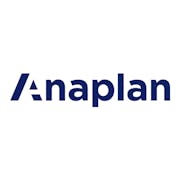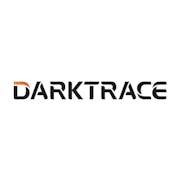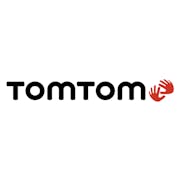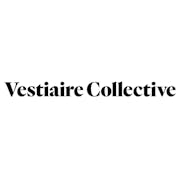Empty dropdown
Notes:Numbers may not add up to 100 due to rounding.

This year has defied expectations, but it needs to be viewed through a longer lens than the past 24 months. The fundraising numbers we became accustomed to seeing last year were astronomically high, so we can be optimistic that what we are witnessing in 2022 still significantly outweighs where we were just two years ago. As the European ecosystem matures, we’re naturally going to see ebbs and flows, but we shouldn’t discount our overall progress on the basis of macro conditions that are impacting every sector worldwide. So despite the headline data, optimism remains high with close to 8 in 10 survey respondents confident in the future of European technology going into 2023.
Despite the many challenges ahead, the resilience of the European tech ecosystem and its ability to 'weather the storm' is reflected in a strong continued sense of optimism in the future of European technology. 77% of all survey respondents are either more optimistic or retain the same level of optimism as they did 12 months ago.
Surprisingly, only 23% of respondents have seen their optimism lessen compared to last year. This is likely because insiders within the European tech ecosystem are able to differentiate between the short-to-mid-term impacts of a financial downturn and the longer-term prospects of the European tech industry, which is ultimately dependent on the strength of the entrepreneurial ecosystem and the tailwinds of technological innovation.
Despite the challenges ahead, and regardless of the stage of their company, founders we surveyed maintain or have increased their confidence in Europe's ability to build global technology leaders. In fact, 45% of all founders say they have more confidence today than they did 12 months ago.
LP appetite to invest in the European venture asset class remains. Though a small number of LP respondents to our survey (8%) report a decreased appetite compared to 12 months ago, we see more than 30% noting they have an increased appetite.
The largest share of respondents (almost 60%) say that their appetite remains unchanged during the last year, which itself has been an important year in further building LP appetite to commit to European VC.
At a regional level, the digital economy already contributes more than 6% of Gross Value Added ('GVA'), equivalent to nearly $800B and significantly more than the European finance and insurance industries combined. While Europe as a whole lags behind the US materially on this measure (6.3% versus 8.8%), selected individual countries within the region, such as Sweden & Bulgaria, are already on par with or close to achieving the same level of GVA contribution from the digital economy. Economically, tech is already vital to Europe.
Tech is only increasing in importance to Europe's economic growth, as the relative contribution of tech continues to outpace other sectors and accelerate ahead. While the tech sector has outgrown non-tech sectors by a factor of two over the trailing 10-year period, tech's growth advantage versus the rest of the European economy has widened to 3.4x in the past three years.
Despite the conditions caused by Russia’s invasion and its brutal war, the Ukrainian Internet and Communication Technology (ICT) sector showed significant growth in February 2022. The single month export figure amounted to $839M, 31% higher than in January 2022, 45% higher than the monthly average for 2021, and 75% higher compared to February 2021.
For the first eight months of 2022, ICT exports actually grew by 16% year over year, according to the monitoring service Opendatabot.
Additionally, as another slice on the data, per the National Bank of Ukraine, during the first nine months of 2022, the volume of Ukrainian computer services increased by 13% (to almost $5.5B). The overall taxes / fees paid by the ICT industry during this time totalled $1.3B. Nine months into this year, the Ukrainian national ICT industry has maintained positive growth and remains the only export industry that stably generates foreign currency income for the Ukrainian economy under current war conditions. Ukrainian companies keep working continuously, implementing projects, paying taxes, attracting investments and new customers, and actively entering the global market.
The scale and depth of the European tech ecosystem has been transformed over the years. This is illustrated by the rapid growth in the number of companies currently starting out and going on to raise initial rounds at Pre-Seed and/or Seed stage.
By the end of 2021, the volume of these rounds had grown 8x within the space of just 10 years, and more than 17x since 2010. The ecosystem is in a fundamentally different place than it was 10 years ago. The pipeline of promising early-stage companies has never been stronger, despite a likely slowdown in sub-$5m rounds in 2022 compared to last year.
How is experience distributed across the founders and C-Level leaders of Europe's startups and scaleups?
Looking first at founders, the vast majority (67%) have more than 10 years of total work experience. Just 4% of founders have started their companies within five years of embarking on their professional careers. As for time spent specifically in a founder capacity, close to 30% have more than 10 years experience in a founder role, while 36% have between five and 10 years.
For C-Level leaders the distribution leans slightly less experienced, with 25% having held leadership positions for more than 10 years, and 52% having less than ten years of total career experience.
Overall, Europe benefits from a strong base, equipped with a range of prior leadership experience.
Facing a challenging year in tech, we wanted to explore the extent to which today's founding and leadership teams have prior experience operating during downturns. To do so, we looked at how many companies in the sample have founders or leaders with more than 15 years of work experience - and therefore experience from a previous downcycle period in tech.
In our sample, we found that 62% of all companies have at least one founder or C-Level leader with prior downcycle experience. As is to be expected, companies that have raised more capital (>$100M in total), and are therefore more mature, are also more likely (78%) to have founders or leaders with prior downcycle experience. Earlier-stage companies, which we defined in this analysis as having raised less than <$10M total, are less likely to have this downcycle experience (57%). That said, the pandemic already put many of these founders to the test, and prepared them for dealing with uncertainty.
Despite the change in the macro environment, founders and leadership teams don't see the war for talent ending any time soon. Talent remains a top challenge both as they reflect back on the year past, and look ahead to the next 12 months. It's also telling that in the past 12 months managing a remote team has matched - and nearly dethroned - hiring as the top people & culture challenge for founders and leaders.
Looking ahead, founders are focused on growth, especially hiring rapidly and retaining current talent. This is a promising indication of founders' determination and expectations for 2023: they are not sitting back, but rather charging forward, and looking for the people to help them do this.
This year, we've sought to quantify how talent is moving thematically within the European tech industry. In other words, which areas - be that fintech, crypto or sustainability - are attracting the biggest movements of talent over time. To do this, we tracked headcount growth across 20,000 companies labelled and clustered thematically using a deep-learning language model.
This reveals interesting themes. Unsurprisingly, post pandemic, the inflow of talent going into healthcare and biotech has come down and similarly the huge inflow of capital into the quick grocery delivery segment led to growth in headcount for the many competing companies in that category, especially during the pandemic years of 2020 and 2021. This trend has now reversed aggressively, as these companies have struggled with sustainable growth.
HR tech, fintech, and crypto are among the themes with meaningful growth in their share of total talent flows this year, while sustainability also holds on to its share of the talent market.
In order to dive into emerging clusters at the earliest stages of company formation, which will provide the best forward-looking indicator of future thematic clustering, we have looked to identify what's happening at the Pre-Series A stage, defined here as rounds of $5M or less. Specifically, we picked out clusters that have seen a new peak in activity in 2022 and that have seen growing investment activity over recent years.
What stands out here is the rise of climate tech clusters within the top 10 highest-ranked clusters based on this methodology. These clusters include companies working on carbon emissions reduction, solar and photovoltaics, air quality, and energy efficiency. Web3 is also a notable theme across the clusters identified, including companies working on core blockchain technologies, as well as NFTs.
| Clusters | 2020 | 2021 | 2022E | YoY growth-(%) | |
|---|---|---|---|---|---|
| 1 | Carbon emissions reduction | 21 | 37 | 40 | 8% |
| 2 | Blockchain | 28 | 28 | 33 | 18% |
| 3 | NFTs | 3 | 23 | 26 | 13% |
| 4 | Solar & photovoltaic | 18 | 17 | 20 | 18% |
| 5 | Air quality | 4 | 6 | 14 | 133% |
| 6 | Metaverse & VR | 2 | 9 | 12 | 33% |
| 7 | Photonics | 4 | 7 | 11 | 57% |
| 8 | Safety tech | 3 | 3 | 10 | 233% |
| 9 | Energy efficiency | 5 | 9 | 11 | 0.22 |
| 10 | Annotation / NLP | 8 | 7 | 10 | 43% |
It is often said that European companies sell out earlier, but the cohort analysis would suggest this isn't the case. In the State of European Tech 2020 report, this statement was further examined and it became evident that in fact, US companies are actually more than 50% more likely to exit after a first round of funding.
The speed of exit should not be seen as a negative but as evidence of both a willingness to "fail faster" and a healthy exit environment. Arguably, Europe stands to benefit from more liquid and earlier recycling of talent and capital. In fact, it could be argued that Europe's challenge is not that European tech companies exit too early, but that they don't exit early enough.
Companies today lean on experience from different time periods of European tech: 55% of founders and 59% of leaders whose profiles we analysed have multi-generational experience, meaning they have gained experience at two or more tech companies belonging to different generations. Generation is defined here by the founding year cohort to which the companies belong.
22% of founders and leaders in our sample also have experience working at $1B+ companies. Among the 4% of founders with that experience, they have combined exposure to over 200 unique $1B+ companies. For leaders, the recycling is even more visible with 31% having worked for a $1B+ company, across more than 300 unique companies. This is to be expected given only a small subset of leaders go on to found their own company, instead of continuing leadership roles.
It's striking that almost 40% of founders have prior experience founding a company, and close to one in five have founded at least two companies prior to their current one. Many within the leadership pool at the top of European tech companies also have their own entrepreneurial experience, with 14% having founded at least one company in the past.
International work experience is common throughout: one-third of all the founders and 45% of all C-Level leaders in the sample have worked abroad at some point in their careers.
for European unicorns overall, ahead of peers based in the United States at 4.9x the same multiple.
One of the strongest indicators of the growing maturity of the European tech ecosystem is the rate and scale at which talent is redeployed from one generation of companies to the next. In other words, evidence of a virtuous cycle - or flywheel - whereby success breeds more success.
One way to quantify the flywheel effect is to measure the number of new founders that have 'graduated' from prior cohorts of successful companies. For example, Europe has now seen the emergence of almost 1,500 founders that went on to start their own companies after working for a European unicorn founded during the 2000s.
If we compare 'alumni' from unicorns founded in the 2000s to those founded in the 2010s, it's clear that the flywheel is picking up speed. Today, the 2010s cohort has led to almost 700 identifiable founders – almost 25x the amount from the 2000s cohort at the equivalent point in time.
Each new decade has brought along more unicorns than the last. This acceleration is most evident among the cohort of companies founded in the 2010s that have since gone on to reach $1B+ valuation. Knowing that there are more startups in Europe today than ever before, it indicates a healthy pipeline ahead.

Co-founded by Ophelia Snyder

Co-founded by Sue Haddleton

Founded by Charlotte Tilbury

Co-founded by Poppy Gustafsson, Emily Orton and Nicole Eagan

Co-founded by Osnat Michaeli

Co-founded by Victoria van Lennep

Co-founded by Sofia Nunes

Co-founded by Ida Johnsen

Co-founded by Shrestha Chowdhury

Co-founded by Pernilla Nyrensten

Founded by Anne Boden

Co-founded by Corinne Vigreux

Co-founded by Fanny Moizant and Sophie Hersan
Current progress on diversity and inclusion is nowhere near fast enough. But that doesn't mean it's not possible. If we zoom out and look across the past five decades, we see important and sustained progress to build on.
Below, we have labelled unicorns as 'diverse' if they have at lease one woman or ethnic minority founding member - not as a perfect proxy for inclusion, but an indicator of broad shifts. While the sample size for the 2020's is small (we're only two years in after all), it is an encouraging sign of what may lie ahead, if players across the ecosystem put their weight behind the mission to increase diversity, equality and inclusion.